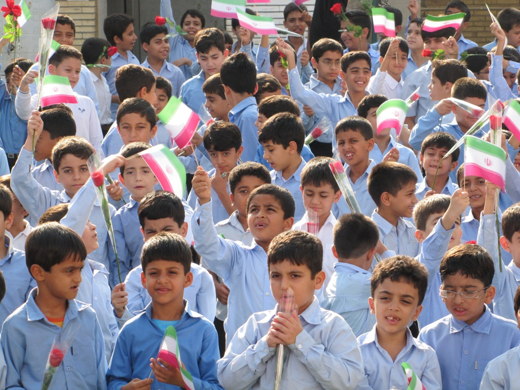The voice of teachers of my school days is still echoing in my ears, those who used to say enthusiastically that the fixed order of “education and moral training” is not right and should be replaced with “moral training and education”, because moral training takes precedence over education. Such mindset seemed to be correct. A lack of harmony between the two generations clearly proves this.
These are the opening sentences of an article the Amordad Weekly – a Zoroastrian magazine – ran in its 317th issue on January 3. What comes below is the partial translation of the piece written by Firouzeh Foroodi:
Back then some teachers believed that training had to come before education. If not, the knowledge – when fallen into the hands of those who don’t deserve it – will be like an unsheathed sword in the hands of a blind drunk man. …
At that time I thought these are excuses by a handful of old, fatigued teachers who failed to establish a bond with their students. It is common knowledge that education and moral training are two complementary and interdependent terms. In other words, education without training leads nowhere. …
Now I’ve come to learn that those teachers were concerned about our present conditions today when moral training has been crushed under the domination of education.
Nowadays training is a term which follows education only to keep an old collocation [of education and training] alive. Today top-performing schools are known with the number of their university admissions or sharp-witted students instead of the number of hopeful and vibrant students who draw on love and faith to work together – not compete against each other– for a better future.
Today the conditions our children live in fall short of moral standards and we have yet to think about what must be done. Our children have received education, not training, for more than 70 years under the auspices of the Ministry of Education, especially at present when everything in life has been overshadowed by technology.
If a child finds enough time to put aside computer and its accessories, they learn that they don’t know how to play. The Iranian children know nothing about the meaning of happiness and grief. They have not learned how to respect adults and do not like teamwork.
In school they just learn to study their lessons. An Iranian teen is good at math and science, and solves math problems, but they fail to endure hardships, inhibit anger, make apologies, and speak their mind in public. […]
Education in the absence of moral training turns students into robots who seek pleasure in the virtual world. They learn friendship, kindness and teamwork in an unreal world. ….
The new education system might have spared the students concerns [about their studies], but it instills carelessness and oversimplificationinto the mind of the present generation.
We have a dream; the dream of schools in which students are both respected and given the opportunity to learn the skills they need to lead a successful life; the dream of training centers where students not only are not demeaned but they are motivated to learn from their mistakes in a safe environment. […]
We dream of training centers where [traditional] methods (learning materials by heart and answering multiple choices) are replaced by ways to think, make innovations, have dialogue, and learn how to be a good human and how to love and be loved.
